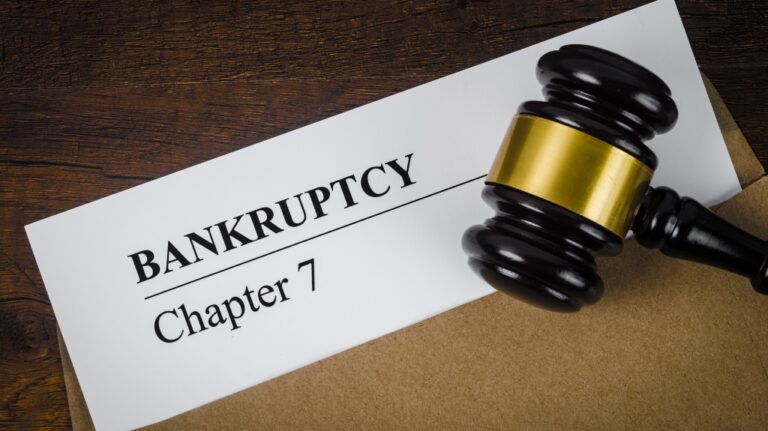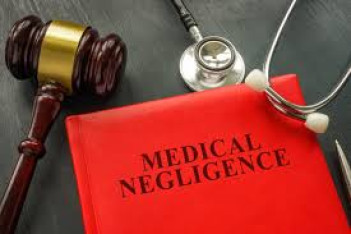Understanding Bankruptcy Relief: A Comprehensive Guide
If debt feels overwhelming, bankruptcy can provide much-needed relief and a fresh financial start. Many individuals and businesses struggle with debt burdens that seem insurmountable, causing significant stress and uncertainty about the future. Fortunately, through the legal process of bankruptcy, there are solutions designed to help debtors regain control over their finances. At the core, bankruptcy serves as a tool to either eliminate or reorganize debts, offering a pathway toward financial stability.
In this article, brought to you by Legal Marketplace CONSULTANT, we will thoroughly examine the essential aspects of bankruptcy relief, especially focusing on Chapter 7 and Chapter 13 bankruptcies. We aim to provide clear, informative, and practical knowledge that can help you understand your options, rights, and obligations when facing insurmountable debt.
What Is Bankruptcy?
Bankruptcy is a legal procedure whereby individuals or entities who are unable to repay their outstanding debts seek relief from some or all of their debts through court-supervised processes. It allows debtors to either eliminate specific types of unsecured debts or develop a plan to repay those debts over time. The primary purpose of bankruptcy is to give debtors a fresh start while ensuring fair treatment of creditors.
Bankruptcy laws in the United States are governed by federal statutes, particularly the Bankruptcy Code, which provides different chapters tailored to varying situations and needs. The most common forms of bankruptcy for individuals are Chapter 7 and Chapter 13, both of which offer distinct pathways to resolving financial distress.
Chapter 7 Bankruptcy: Liquidation and Debt Discharge
Chapter 7 bankruptcy, often referred to as "liquidation bankruptcy," allows individuals to discharge most unsecured debts, providing immediate relief from financial obligations. In this process, a court-appointed trustee may liquidate certain non-exempt assets to pay creditors; however, many personal assets are protected under exemption laws.
The key advantages of Chapter 7 bankruptcy include:
- Rapid discharge of eligible unsecured debts, typically within a few months.
- An automatic stay that halts collections, lawsuits, wage garnishments, and other creditor actions.
- Protection of certain property through exemptions, allowing debtors to retain essential items.
It is essential to understand that Chapter 7 does not clear all types of debts. Some obligations, such as certain taxes, student loans, child support, and spousal support, usually remain enforceable after bankruptcy. Additionally, debtors must complete the required means test to qualify for Chapter 7, verifying that their income does not exceed certain thresholds.
Chapter 13 Bankruptcy: Repayment and Reorganization
Chapter 13 bankruptcy, commonly called a "wage earner’s plan," is designed for individuals who have a steady income and want to repay their debts over time while retaining their assets. Instead of liquidating assets, Chapter 13 involves the formulation of a court-approved repayment plan, typically spanning three to five years.
The benefits of Chapter 13 include:
- Rescheduling of secured debts like mortgages and car loans to avoid foreclosure or repossession.
- Opportunity to pay back some or all debts in manageable installments.
- Continued protection from creditor actions under an automatic stay during the repayment period.
Chapter 13 is particularly useful for individuals with significant non-dischargeable debts or insufficient asset protection under Chapter 7 exemptions. It requires accurate disclosure of all income, assets, and debts to create a feasible repayment plan, which must gain court approval.
The Automatic Stay: Immediate Protection Upon Filing
One of the most significant advantages of filing for bankruptcy—either Chapter 7 or Chapter 13—is the immediate imposition of an automatic stay. This legal injunction stops creditors from taking further collection actions against the debtor. Specifically, upon filing bankruptcy, creditors must cease:
- Phone calls and letters demanding payment.
- Lawsuits and legal actions seeking to collect debts.
- Foreclosure on homes or repossession of personal property.
- Wage garnishments or bank account levies.
This protection provides immediate relief and helps prevent the situation from worsening while the court assesses the debtor’s financial circumstances.
Honest and Complete Disclosure: A Legal Requirement
Honesty is paramount when filing for bankruptcy. The debtor must list all income sources, assets, liabilities, and financial transactions fully and truthfully. Failure to disclose information can result in case dismissal, denial of discharge, or even criminal charges for bankruptcy fraud.
Accurately reporting all assets and income ensures proper treatment of debts in compliance with the law. It also helps the court and trustee determine eligible exemptions and the viability of repayment plans, especially in Chapter 13 cases.
Working with experienced legal counsel can assist in navigating these disclosure requirements successfully, avoiding pitfalls, and enhancing the prospects of a successful bankruptcy resolution.
Rebuilding Credit After Bankruptcy
Contrary to common misconceptions, bankruptcy is not the end of your credit life. When done properly, bankruptcy can serve as a tool to rebuild credit rather than destroy it irreparably. While a bankruptcy filing will remain on your credit report for 7 to 10 years, it also removes overwhelming debts and stops creditor aggressions, enabling you to start fresh.
Post-bankruptcy, individuals can take positive steps to restore their financial health:
- Obtain a secured credit card to start rebuilding credit.
- Make all payments on time to demonstrate responsible financial behavior.
- Maintain a budget and manage expenses prudently.
- Avoid accumulating new debt unnecessarily.
- Check credit reports regularly to ensure accuracy.
With discipline and time, it is possible to rebuild a strong credit profile and regain financial freedom.
When to Seek Professional Legal Assistance
Bankruptcy law is complex and varies with individual circumstances. Attempting to navigate the process without guidance can lead to mistakes with lasting consequences. Professional legal assistance ensures:
- Proper evaluation of eligibility and selection of the appropriate bankruptcy chapter.
- Accurate preparation and filing of all necessary documents.
- Protection of exempt assets and rights.
- Skilled representation at hearings and creditor meetings.
- Strategic advice on credit rebuilding and post-bankruptcy planning.
If debt has become overwhelming, consulting with experienced bankruptcy attorneys can make a significant difference in outcomes. Legal Marketplace CONSULTANT offers expert legal support tailored to your unique financial situation. Contact us through the communication channels in bio or send a private message for personalized assistance.
Bankruptcy can be a powerful tool for individuals facing unmanageable debt, offering relief and a pathway toward financial recovery. Understanding the differences between Chapter 7 and Chapter 13 bankruptcy, the protections provided by an automatic stay, and the importance of full disclosure can empower debtors to make informed decisions. Proper legal guidance ensures the bankruptcy process proceeds effectively, protecting your rights and helping you rebuild your financial future. Reach out to Legal Marketplace CONSULTANT for trusted assistance tailored to your needs.
Legal Marketplace CONSULTANT is committed to providing comprehensive legal support for debt relief through bankruptcy and other financial solutions. Our team of experienced attorneys is dedicated to guiding you every step of the way towards a stable financial future.































